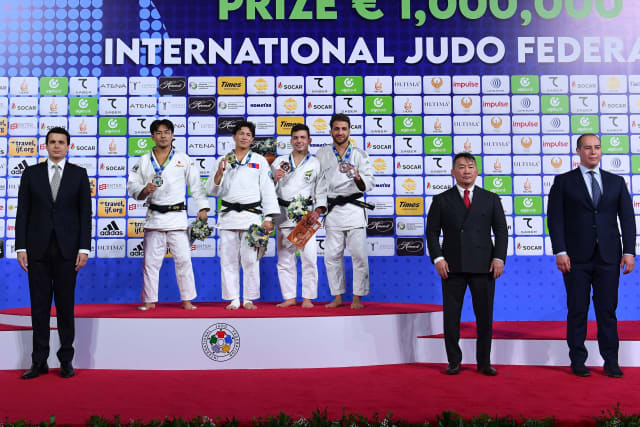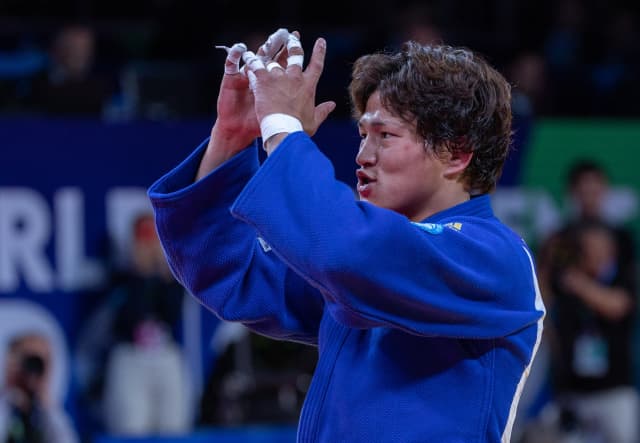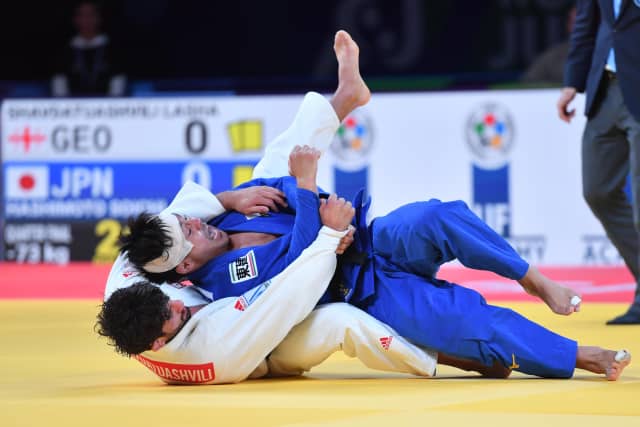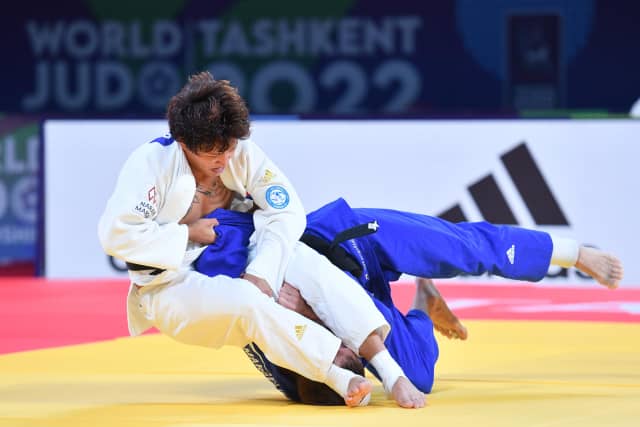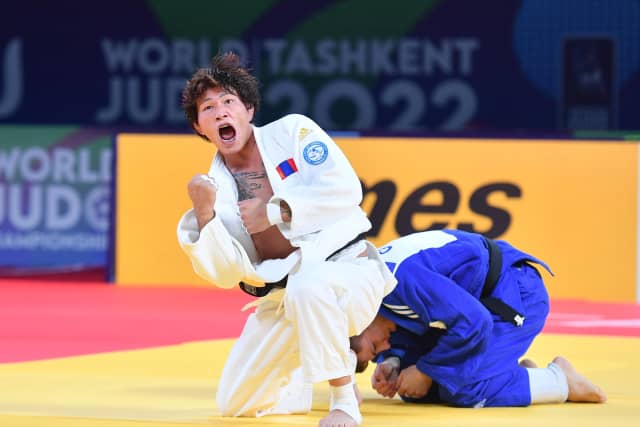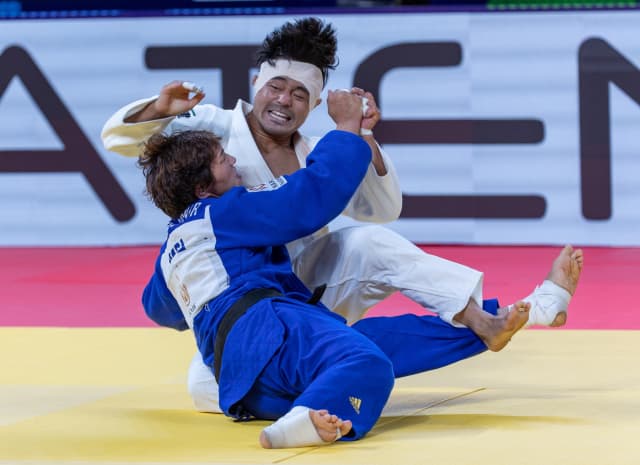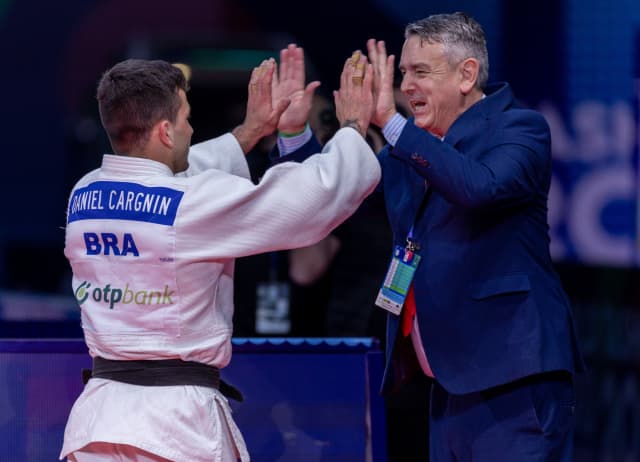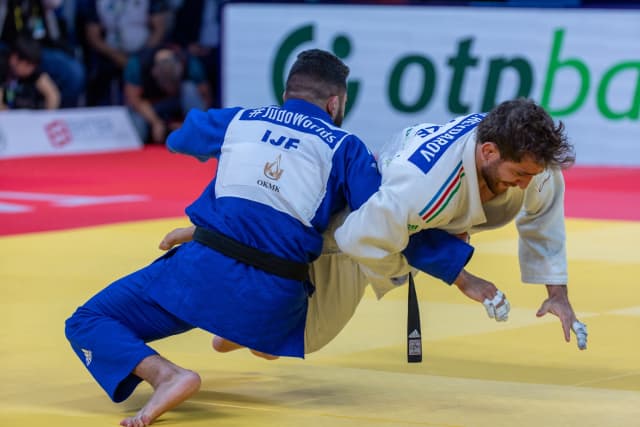Soichi Hashimoto is an exemplary professional and many should learn from him. Here we integrate other sports disciplines. He is a model because he has Shohei Ono ahead of him, the golden boy of judo, untouchable and invincible. Hashimoto accepts the superiority of his compatriot with sportsmanship, continues to train to the maximum and responds immediately when Ono is not there and they call him. This is how he became world champion in 2017 and this is how he tried to repeat it in Tashkent after a day in which his only problem was keeping the bandage in place that had been put on his head due to an injury. Hashimoto controlled all of his bouts, successively eliminating France's Gaba, defending champion Shavdatuashvili of Georgia in the quarter-finals and then Israel's Tohar Butbul in the semi-finals. In the final he fought against Tsogtbaatar Tsend-Ochir.
The Mongolian is one of the best pieces of news in recent times. An Olympic medallist in Tokyo, Tsend-Ochir leads the new Mongolian generation, a young team, highly prepared, highly motivated and he is its greatest exponent. His style is the opposite of Hashimoto's because Tsend-Ochir is one of those who attacks and always looks for ippon.
In the preliminaries, he defeated Israeli Levin, the only one capable of surprising the Mongolian with an early waza-ari, Romanian Sulca and then Canadian Margelidon. In his semi-final was the Italian Manuel Lombardo, former number one in the ranking and who also had a sweet and inspired morning. Tsend-Ochir won, secured a medal for his country and above all, he was the only one who could prevent the Japanese anthem from being played for the fifth time.
Hashimoto has the experience that Tsend-Ochir needs to grow, it's age stuff. We already know the Mongol's talent but Hashimoto knows how and when to raise the bar in his judo and that's what he did in the final, because he attacked when correct to do so. Considering both styles, it was Tsend-Ochir leading the offensive. The Mongolian improved, went on the attack and added the necessary suspense to a final of this type. There were thirty seconds left and both were one penalty away from elimination. The unthinkable came ten seconds later. Hashimoto launched a sweep that was perfectly countered in masterful fashion. It was the only mistake of a seasoned professional, but the biggest mistake and the consecration of the jewel of Mongolian judo, Tsend-Ochir. Perhaps the new world champion, next time, will distribute leaves with the anthem of his country printed, so that we can learn the lyrics.
Lombardo was looking for a second bronze medal for Italy and Daniel Cargnin a second medal of the day for Brazil. For Cargnin, the occasion of fighting for the medals was already a success because he changed category after the Tokyo Games, in which he won the bronze. A year is a short time but Cargnin has adapted perfectly and got the metal, defeating Lombardo cleanly by ippon.
Heydarov vs Butbul isn't a classic but it's on its way. Three times they have fought and all three times the Azeri Hidayat Heydarov, who just recently won in Zagreb, won. Both wanted to add a first medal for their respective countries. We were able to verify that Butbul had studied Heydarov very well and that he anticipated his attacks but we also saw how the Azeri continued to be better and achieved good grips to launch attacks. Heydarov solved the problem in ne-waza before reaching the third minute of the golden score period, winning his third world bronze.
Final (-73 kg)
Bronze Medal Fights (-73 kg)
Final Results (-73 kg)
